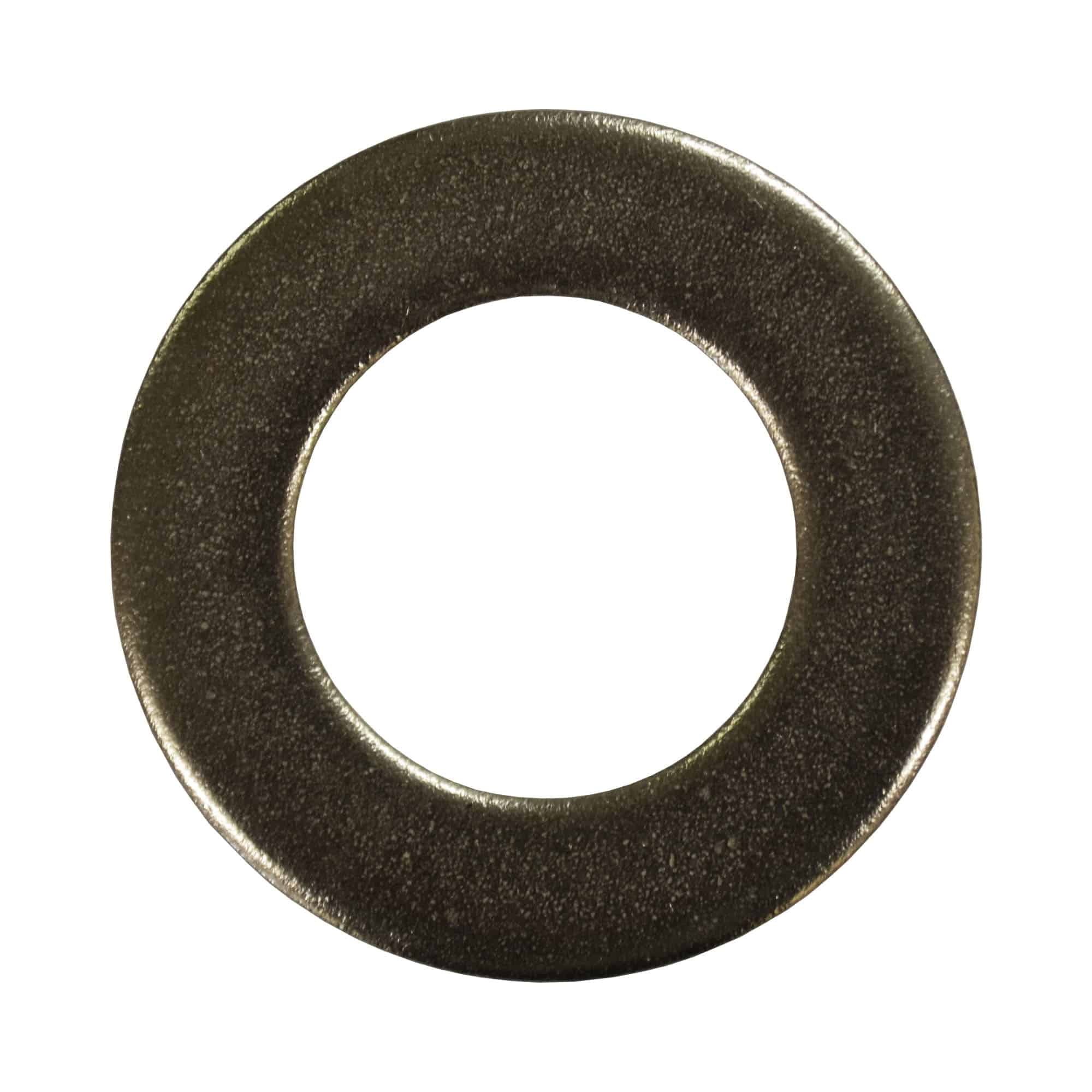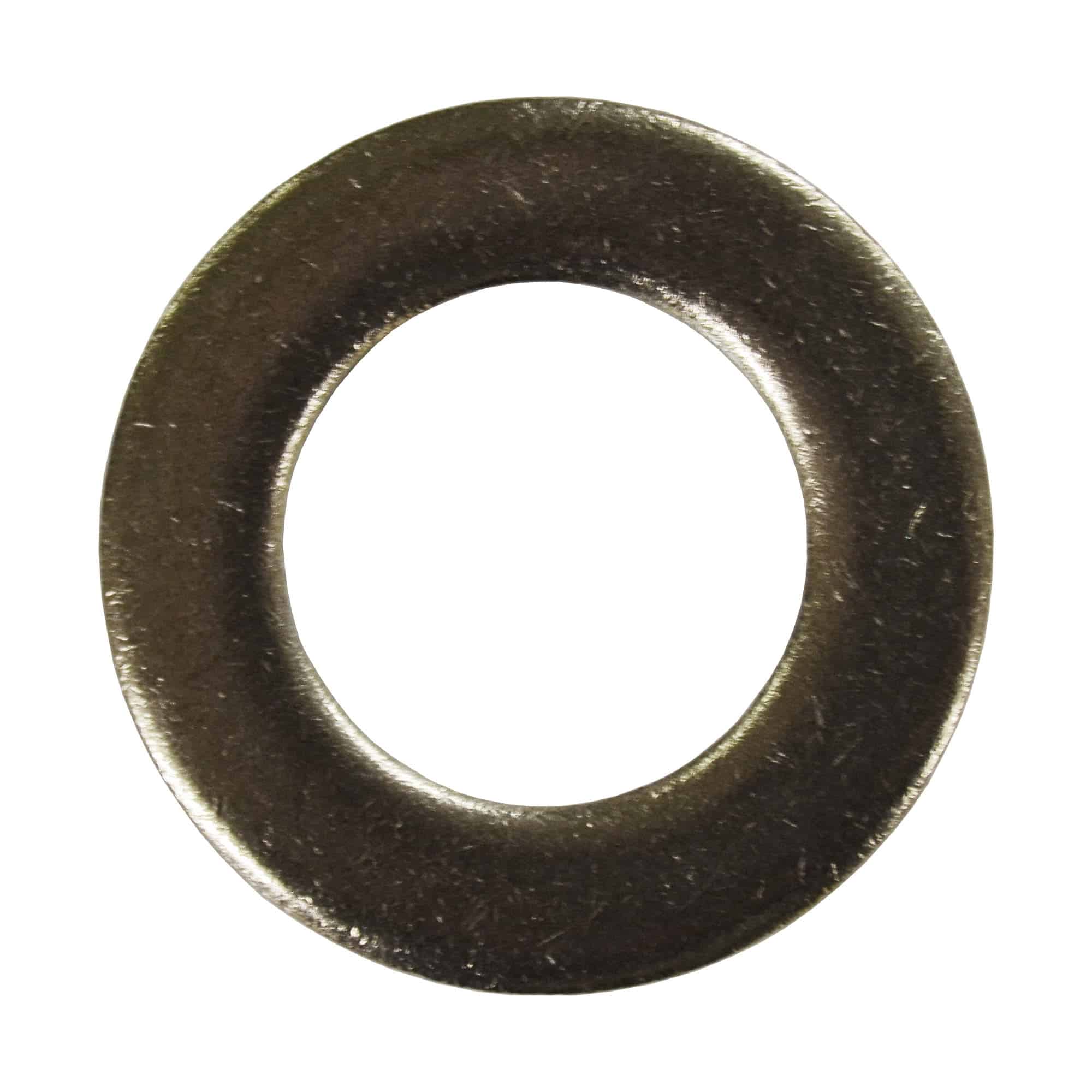- Massive Range
- FREE UK Delivery
- Rapid Dispatch
- Massive Range
- FREE UK Delivery
- Rapid Dispatch
- Massive Range
- FREE UK Delivery
- Rapid Dispatch
Menu
£2.35 – £7.95 inc VAT

When it comes to securing fasteners, finding the right metal washer can make all the difference. That’s where the M16 (17mm) A2 Stainless Steel Form A Flat Metal Washer by Speciality Metals comes in. Not only is it made from 304 grade stainless steel, known for its durability and corrosion resistance, but it also boasts impressive hygiene properties. Plus, it’s a versatile option that requires low maintenance, making it a practical choice for a variety of applications. Whether you’re in need of a secure washer for a DIY project or for industrial uses, this washer has got you covered. With all of these qualities, it’s no wonder why the M16 (17mm) A2 Stainless Steel Form A Flat Metal Washer is a top choice for the job at hand.
Top quality stainless steel flat metal washer fasteners supplied straight from Warrington, UK. These washers are for metric bolts and screws.
When shopping for a metal washer, you should choose something durable, secure, and low maintenance. This checks all those boxes and more with the M16 (17mm) A2 Stainless Steel Form A Flat Metal Washer from Speciality Metals. With its 304 grade stainless steel construction, this washer not only offers impressive hygiene benefits and corrosion resistance – so it’ll last for years to come. The versatility of this washer allows it to be used in a wide variety of situations. Whether you need it for automotive or industrial applications, this washer will not disappoint. You can rely on Speciality Metals for a reliable and long-lasting washer.
Form A flat metal washer that are most used around the world.
Key product details:
Speciality Metals are the best suppliers for you because:
Speciality Metals is a trusted UK based distributor of fasteners, sheet metal, flat bar and round tube. We specialise in rapid delivery to any location around the country. Our team of experienced, friendly staff are at hand at all times to process your order.
The reusability of stainless steel Form A washers depends on several factors including the application, the conditions under which they have been used and the presence of any visible wear or damage.
Visual Inspection: Check for signs of deformation, corrosion or wear. Damaged or visibly worn washers should not be reused.
Application Specifics: If the washers were initially used in critical, high-load or safety-sensitive applications, it’s generally advisable not to reuse them.
Material Fatigue: Stainless steel can suffer from work hardening and fatigue over time, reducing its ability to bear loads.
Corrosion: Even stainless steel can corrode, particularly in aggressive environments. Corroded washers should not be reused.
Quality of Original Material: Higher quality stainless steel will generally last longer and may be more suitable for reuse compared to lower grades, provided they pass all other checks.
Regulatory and Company Guidelines: Some industries have stringent rules about part reuse, so always check if any regulations or guidelines restrict the reuse of washers.
Non-Critical Applications: For non-critical, low-stress applications where failure is not a safety concern, reusing stainless steel washers may be acceptable if they pass visual and physical inspections.
Critical Applications: For safety-critical applications, it’s generally not advisable to reuse fasteners or washers due to the risk of material fatigue and the potential for catastrophic failure.
Remove and Inspect: Carefully remove the washer from its previous installation and inspect it for any visible signs of wear, deformation or corrosion.
Clean: If the washer is visibly dirty, clean it with appropriate solvents to remove grease, dirt or corrosion products.
Measure: Use calipers or other measuring tools to ensure that the washer still meets the specifications required for your application.
Document: Keep records of where and how each washer was used previously if you are considering reusing them for critical applications.
Always consult engineers or maintenance professionals before reusing washers in any applications, especially critical or high-load ones, to ensure that it’s both safe and appropriate to do so.
Both 304 and 316 grades of stainless steel are commonly used to manufacture Form A washers, but they have some important differences in terms of composition and properties.
The suitability of Form A washers for high-temperature applications depends largely on the material from which they are made. Let’s consider stainless steel Form A washers, particularly those made from 304 and 316 grades, as they are commonly used:
Creep Resistance: At high temperatures, metals can experience “creep,” a slow deformation over time. The creep resistance of the material can be crucial in high-temperature applications.
Oxidation: At elevated temperatures, the risk of oxidation increases. Some materials form a protective oxide layer, while others may deteriorate more quickly.
Thermal Expansion: Materials expand when heated, which could affect the fit and effectiveness of the washer. This is particularly important in bolted assemblies.
Material Compatibility: Make sure that the washer material is compatible with the materials of the bolt and the mating surfaces, especially at high temperatures.
Industry Standards: Some industries have specific standards for high-temperature applications, and it’s crucial to consult these before selecting your materials.
Chemical Environment: High temperatures can accelerate chemical reactions, making materials more susceptible to corrosion from chemicals present in the environment.
The torque specifications for a bolted assembly that includes Form A washers are not determined by the washers alone, but rather by the entire fastening system. This includes the type and grade of bolt, the type of nut, the materials being fastened and the environmental conditions (e.g., temperature, moisture, vibration).
Different grades of bolts have different recommended torque specifications. The torque is generally higher for high-grade bolts compared to lower grades.
The material you are fastening together can also dictate the amount of torque you should apply. Soft materials like plastic require less torque compared to hard materials like steel to prevent deformation or damage.
The use of lubricants can significantly affect the torque required for a given clamping force. Always follow guidelines or conduct tests when using lubricants.
Factors like temperature, humidity and vibration can affect the torque-tension relationship. In some cases, special consideration must be given to these factors.
The method of tightening (e.g., manual, torque wrench, hydraulic tensioning) can affect the accuracy of the achieved torque and therefore the effectiveness of the fastening.
Certain industries or projects may have specific guidelines or standards that dictate the required torque specifications.
Since washers distribute the load and can affect the friction characteristics of the bolted joint, they are an integral part of the assembly. However, the torque specifications are generally determined by the type and grade of the bolt or screw, rather than the washer.
Check out our blogs discussing Stainless Steel Form A Washers. It will prove a useful read to help you to make an informed decision on which material would work best for you.
We are also very proud of our ever expanding YouTube channel.
Our goal for our blogs, videos and help guides is to answer as many questions as possible to help to explain the possibilities of mesh to our customers. Contact us today if you have any questions at all. We are always really keen to help in any way that we can.
We are also very proud of our highly popular eBay store, check us out there too.
Thank you for checking out our product.
£2.55 – £11.95 inc VAT
£2.35 – £7.95 inc VAT

£2.55 – £11.95 inc VAT

£2.35 – £7.95 inc VAT
Speciality Metals
Unit 1, Farrell Street, Warrington,
Cheshire, WA1 2WW, United Kingdom
Quick Links
Payment Options
